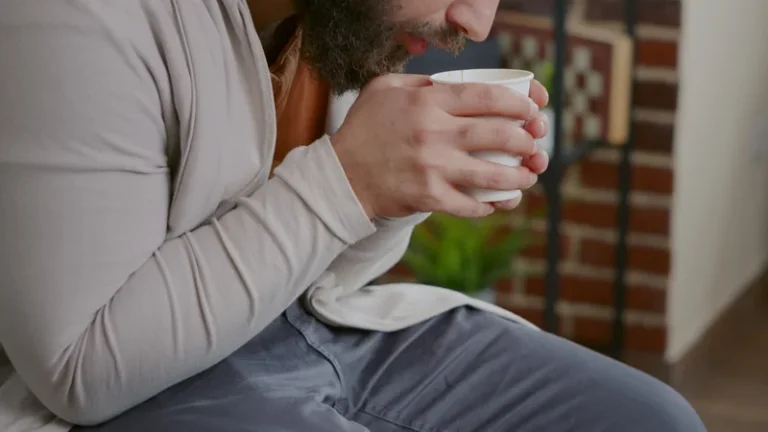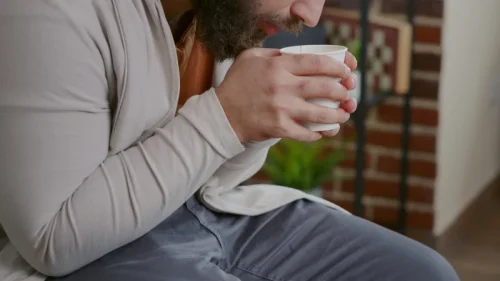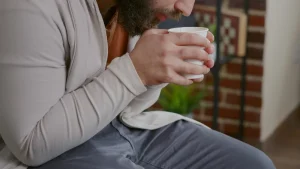
Making living amends primarily benefits you and not the people you’ve wronged in the past. It’s about making positive changes within yourself so that you don’t repeat old patterns of behavior that led to your broken relationships in the first place. The changes that occur due to your efforts positively affect your commitment to becoming a better friend, child, parent, or person all around. Similarly to making living amends, it’s also important to note that making amends is not a one-time event but rather an ongoing commitment that must be woven into an individual’s lifelong recovery journey. As the person in recovery continues to grow and evolve, they may uncover additional relationships or harms that require attention and repair. Steps 8 and 9 in the 12-step programs talk about “making a list of all persons we had harmed” in step 8, and “making direct amends, wherever possible” in step 9.

Step 9 is All About Action
- You might consider writing a letter, which may help you organize your thoughts and communicate more clearly.
- But by prioritizing your recovery on a daily basis and doing whatever that next right thing might be for you, you will keep moving forward in living a life of good purpose.
- Before you decide who to approach and how you intend to make amends, reflect on your efforts at recovery and the intent behind making amends.
Making amends is important because it allows us to right the wrongs of our past. … However, the real focus of this part of our recovery process is to bring healing and freedom into the lives of those we have harmed. However, facing these painful feelings is exactly the reason that making amends is so important. Sometimes, the person being approached for amends may need more time to be willing or ready to engage.

Center for Teens, Young Adults and Families

However, in the context of grief recovery, David Kessler, in his book Finding Meaning, talks about the importance of living amends as a tool for grief healing. In particular, he discusses how to heal when the person we need to make amends with is no longer living. Living amends refers to making promises to the people in your life whom you’ve wronged or who have hurt you. These promises focus on rebuilding your relationship with a loved one and moving forward from the pain of the past. Making amends with the people you’ve fallen out with as you’re thinking about mortality and what happens when you die is one way of finding emotional freedom and closure. But what happens when the person you need to make amends with dies before you’re able to apologize and change your ways?
Apologize (Sincerely)
The FHE Health team is committed to providing accurate information that adheres to the highest standards of writing. If one of our articles is marked with a ‘reviewed for accuracy and expertise’ badge, it indicates that one or more members of our team of doctors and clinicians have reviewed the article further to ensure accuracy. This is part of our ongoing commitment to ensure FHE Health is trusted as a leader in mental health and addiction care. We are seeking accountability for our own actions and holding ourselves to the standards of our own values and our 12 Step program. Recognize and acknowledge your behaviors that caused harm to someone else.
Addiction Info
When appropriate, remind others that you are here if they change their mind or wish to talk. Apologizing in this way may open the door to continued healing, growth, and restored relationships in recovery. Resolve to work at making things better between you and keeping your promises. Give each other space to figure out any new roles within your relationship and take things https://ecosoberhouse.com/ slowly. Don’t expect immediate forgiveness, and also, don’t pressure yourself to fix every broken relationship immediately. If you promised your father to help him mow the lawn on Sundays, but years have passed, and you’ve never once shown up, start now.
When and Why Do People Make Living Amends?
Children of parents with Oxford House substance use disorders are particularly vulnerable, as the instability and inconsistency caused by addiction can profoundly impact their emotional, behavioral, and social development. Other amends will involve paying back stolen money and taking time to spend with neglected family members and friends who are hurt by the neglect of selfish addicts. Nowhere in these definitions is the word apology listed. So it is important to understand the language of recovery and make sure that what is being taught is what is truly being learned. By changing for the better, as listed in b), it is thought that this is the best definition for purposes of amending ones’ addicted behaviors. We also offer several sober living homes and apartment units that are designed to help you live a new sober lifestyle by offering, safe, structured, and affordable housing.
Surrounded by hills and forest, Serenity Knolls is a private campus providing rustic cabins, 12-Step treatment approach, and a living amends definition family program. A lakefront oasis providing a continuum of personalized addiction treatment surrounded by scenic views with private rooms, luxury amenities, and group outings. To learn more about addiction recovery, including AA, reach out to Silver Mist Recovery. Lists to Help you Through Any Loss is for people experiencing any type of loss. This book discusses some of the most common grief experiences and breaks down psychological concepts to help you understand your thoughts and emotions.
Making Indirect Amends

The person may not even remember the incidents in question from memory, but others may remember them quite well. What comes up may be feelings of guilt, shame, or something else entirely. The theme of making amends is forgiveness, and although it is one of the steps people may not like, it comes at this point in the AA journey for a reason. It means the person has come to a point where they are ready to move forward through this step, but it takes some finesse to do it without causing more harm to loved ones. The steps in recovery with Alcoholics Anonymous (AA) are 8 and 9. They include making a list of persons harmed and making direct amends where possible to those people.
- Like the definition says, amends is something we do to make up for something we feel guilty for.
- Although face-to-face amends are always better, that may not always be possible or, it may cause more harm to do so in-person.
- We believe that the only path to forgiveness is asking it of the person we love, the person we believe we hurt, and making amends for what we did wrong.
- As with alcohol and other drugs, we are also powerless over other people.
- At Eudaimonia Recovery Homes, we provide personalized recovery support with comfortable sober living Austin, Houston, and Colorado Springs.
- It would be easy to think there is nothing more WYG can write about guilt and grief.
Our team will work closely with you throughout this process to help you achieve your goals in recovery. Direct, face-to-face amends are encouraged to facilitate genuine healing. For example, if you once stole from a coworker, you could apologize and offer repayment. This step seeks inner peace and rebirth through the act of making things right, but only when it won’t harm others in the process. Making amends can also reduce stress, by addressing past wrongs may prevent future conflicts that could jeopardize sobriety. Generally speaking, people work through the Steps of Alcohol Anonymous with an addiction treatment counselor and/or sponsor.

Commenti recenti